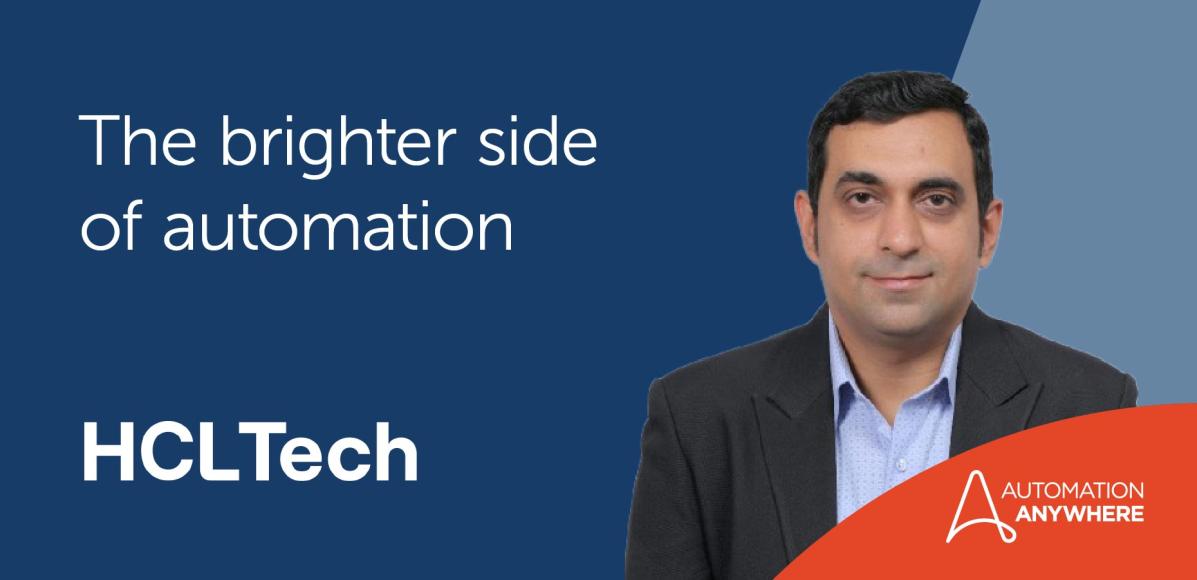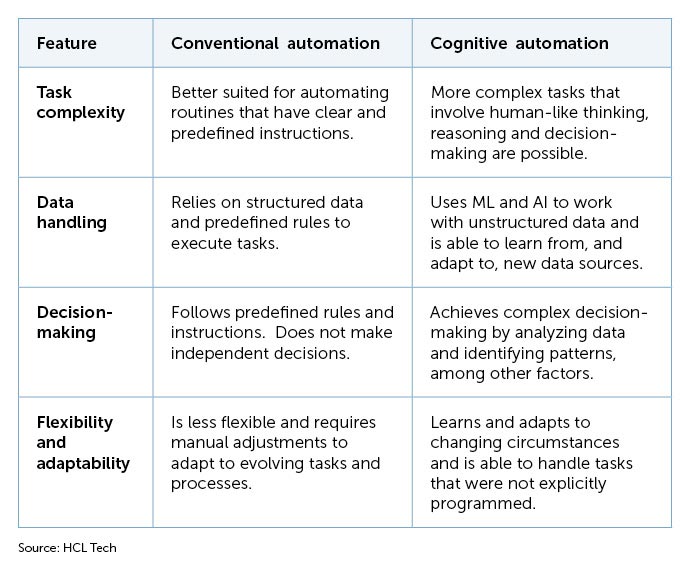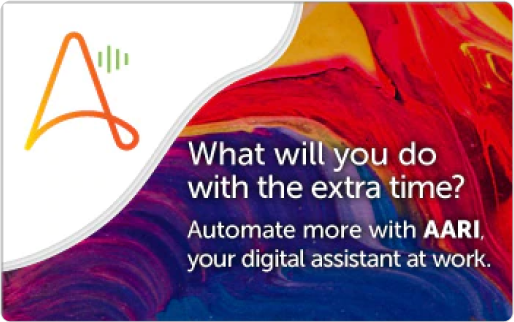Blog
Cognitive Automation: Committing to Business Outcomes

We’re honored to feature our guest writer, Pankaj Ahuja, the Global Director of Digital Process Operations at HCLTech. With a wealth of experience and expertise in the ever-evolving landscape of digital process automation, Pankaj provides invaluable insights into the transformative power of cognitive automation. Join us as he shares his in-depth knowledge on this dynamic and intelligent alternative to conventional automation, its impact on businesses, and the essential role it plays in enhancing competitiveness and agility in today's fast-paced business environment. Pankaj Ahuja's perspective promises to shed light on the cutting-edge developments in the world of automation.
While enterprise automation is not a new phenomenon, the use cases and the adoption rate continue to increase. This is reflected in the global market for business automation, which is projected to grow at a CAGR of 12.2% to reach $19.6 billion by 2026.
As technology evolves, so does business process automation—charting its own path of innovation: Moving on from focusing on ROI obtained from automating individual tasks and simple processes, the industry is now taking a holistic view of automation as a mechanism to achieve business targets and goals in alignment with ever-shifting goal posts, organizational KPIs, and executive mandates.
In the past, despite all efforts, over 50% of business transformation projects have failed to achieve the desired outcomes with traditional automation approaches. Automation has lacked a critical element—cognitive AI.
Introducing cognitive automation
Cognitive automation leverages cognitive AI to understand, interpret, and process data in a manner that mimics human awareness and thus replicates the capabilities of human intelligence to make informed decisions. By combining the properties of robotic process automation with AI/ML, generative AI, and advanced analytics, cognitive automation aligns itself with overarching business goals over time.
To implement cognitive automation effectively, businesses need to understand what is new and how it differs from previous automation approaches. The table below explains the main differences between conventional and cognitive automation.

But where do businesses implement cognitive automation? The simple answer is: Everywhere! In fact, let’s look at a few common use cases.
- Customer service
- Sentiment analysis with AI to monitor social media and customer feedback and gather insights on public perception.
- Chatbots and virtual assistants using natural language to improve customer engagement.
- Data extraction
- Ability to review and extract information from legal documents with high accuracy and efficiency.
- Speeds up the Accounts Payable process by extracting relevant data from invoices and other sources.
- Healthcare
- Chemical structure analysis can help predict effectiveness and identify potential drug candidates.
- Analysis of patient data helps with accurate diagnosis and patient care.
- Predictive maintenance
- Reducing manufacturing downtime by predicting when equipment will need maintenance.
- Can optimize fleet schedules by analyzing sensor data from vehicles.
Due to its nature, cognitive automation inherently generates tangible benefits for businesses, irrespective of where they are applied. Its capability highlights include:
- Handling complex tasks by processing unstructured data and natural language to help businesses automate a wider range of processes.
- Improved decision-making, better customer service, and more effective resource allocation with enhanced data-driven decisions and predictions
- Enhanced customer engagement with personalized and context-aware interactions.
- Scalability without a significant increase in operational costs, which is particularly beneficial for businesses experiencing unplanned growth
- Reduced error rates by automating cognitive tasks, leading to higher-quality outputs and improved compliance
- Enhanced productivity by freeing employees from repetitive and time-consuming tasks.
- Cost savings in the long run through improved efficiency, reduced error rates, and optimized resource allocation
- Competitive advantage for businesses by staying agile with changes, making faster and more informed decisions, and delivering better customer experiences.
It is hardly surprising that the global market for cognitive automation is expected to spiral between 2023 and 2030 at a CAGR of 27.8%, valued at $36.63 billion.
Taking the right step forward
The transformative power of cognitive automation is evident in today's fast-paced business landscape. Cognitive automation presents itself as a dynamic and intelligent alternative to conventional automation, with the ability to overcome the limitations of its predecessor and align itself seamlessly with a diverse spectrum of business objectives. This makes it a vital tool for businesses striving to improve competitiveness and agility in an ever-evolving market.
Implementing cognitive automation successfully requires the expertise of a seasoned technology partner: HCLTech has the proven capabilities and track record to help businesses navigate the complexities of this transformative technology and ensure its seamless integration across the organization.
In a landscape where adaptability and efficiency are paramount, those businesses collaborating with trusted partners to embrace cognitive automation are the most successful in meeting and exceeding their committed business outcomes.
Share this:
Related Blogs
About Pankaj Ahuja

Pankaj is the Global Director of Digital Process Operations at HCLTech.
Subscribe via EmailView All Posts LinkedIn







